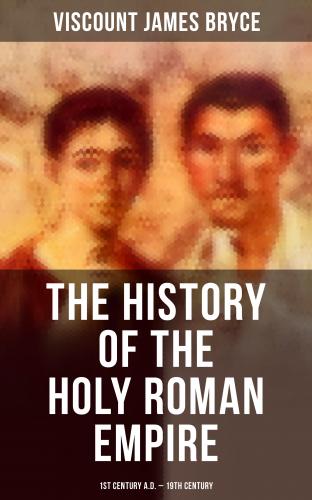Scarcely had these slowly working influences brought about this unity, when other influences began to threaten it. New foes assailed the frontiers; while the loosening of the structure within was shewn by the long struggles for power which followed the death or deposition of each successive emperor. In the period of anarchy after the fall of Valerian, generals were raised by their armies in every part of the Empire, and ruled great provinces as monarchs apart, owning no allegiance to the possessor of the capital.
The founding of the kingdoms of modern Europe might have been anticipated by two hundred years, had the barbarians been bolder, or had there not arisen in Diocletian a prince active and politic enough to bind up the fragments before they had lost all cohesion, meeting altered conditions by new remedies. By dividing and localizing authority, he confessed that the weaker heart could no longer make its pulsations felt to the body's extremities. He parcelled out the supreme power among four persons, and then sought to give it a factitious strength, by surrounding it with an oriental pomp which his earlier predecessors would have scorned. The sovereign's person became more sacred, and was removed further from the subject by the interposition of a host of officials. The prerogative of Rome was menaced by the rivalry of Nicomedia, and the nearer greatness of Milan. Constantine trod in the same path, extending the system of titles and functionaries, separating the civil from the military, placing counts and dukes along the frontiers and in the cities, making the household larger, its etiquette stricter, its offices more important, though to a Roman eye degraded by their attachment to the monarch's person. The crown became, for the first time, the fountain of honour. These changes brought little good. Heavier taxation depressed the aristocracy4: population decreased, agriculture withered, serfdom spread: it was found more difficult to raise native troops and to pay any troops whatever. The removal of the seat of power to Byzantium, if it prolonged the life of a part of the Empire, shook it as a whole, by making the separation of East and West inevitable. By it Rome's self-abnegation that she might Romanize the world, was completed; for though the new capital preserved her name, and followed her customs and precedents, yet now the imperial sway ceased to be connected with the city which had created it. Thus did the idea of Roman monarchy become more universal; for, having lost its local centre, it subsisted no longer historically, but, so to speak, naturally, as a part of an order of things which a change in external conditions seemed incapable of disturbing. Henceforth the Empire would be unaffected by the disasters of the city. And though, after the partition of the Empire had been confirmed by Valentinian, and finally settled on the death of Theodosius, the seat of the Western government was removed first to Milan and then to Ravenna, neither event destroyed Rome's prestige, nor the notion of a single imperial nationality common to all her subjects. The Syrian, the Pannonian, the Briton, the Spaniard, still called himself a Roman5.
For that nationality was now beginning to be supported by a new and vigorous power. The Emperors had indeed opposed it as disloyal and revolutionary: had more than once put forth their whole strength to root it out. But the unity of the Empire, and the ease of communication through its parts, had favoured the spread of Christianity: persecution had scattered the seeds more widely, had forced on it a firm organization, had given it martyr-heroes and a history. When Constantine, partly perhaps from a genuine moral sympathy, yet doubtless far more in the well-grounded belief that he had more to gain from the zealous sympathy of its professors than he could lose by the aversion of those who still cultivated a languid paganism, took Christianity to be the religion of the Empire, it was already a great political force, able, and not more able than willing, to repay him by aid and submission. Yet the league was struck in no mere mercenary spirit, for the league was inevitable. Of the evils and dangers incident to the system then founded, there was as yet no experience: of that antagonism between Church and State which to a modern appears so natural, there was not even an idea. Among the Jews, the State had rested upon religion; among the Romans, religion had been an integral part of the political constitution, a matter far more of national or tribal or family feeling than of personal6. Both in Israel and at Rome the mingling of religious with civic patriotism had been harmonious, giving strength and elasticity to the whole body politic. So perfect a union was now no longer possible in the Roman Empire, for the new faith had already a governing body of her own in those rulers and teachers whom the growth of sacramentalism, and of sacerdotalism its necessary consequence, was making every day more powerful, and marking off more sharply from the mass of the Christian people. Since therefore the ecclesiastical organization could not be identical with the civil, it became its counterpart. Suddenly called from danger and ignominy to the seat of power, and finding her inexperience perplexed by a sphere of action vast and varied, the Church was compelled to
